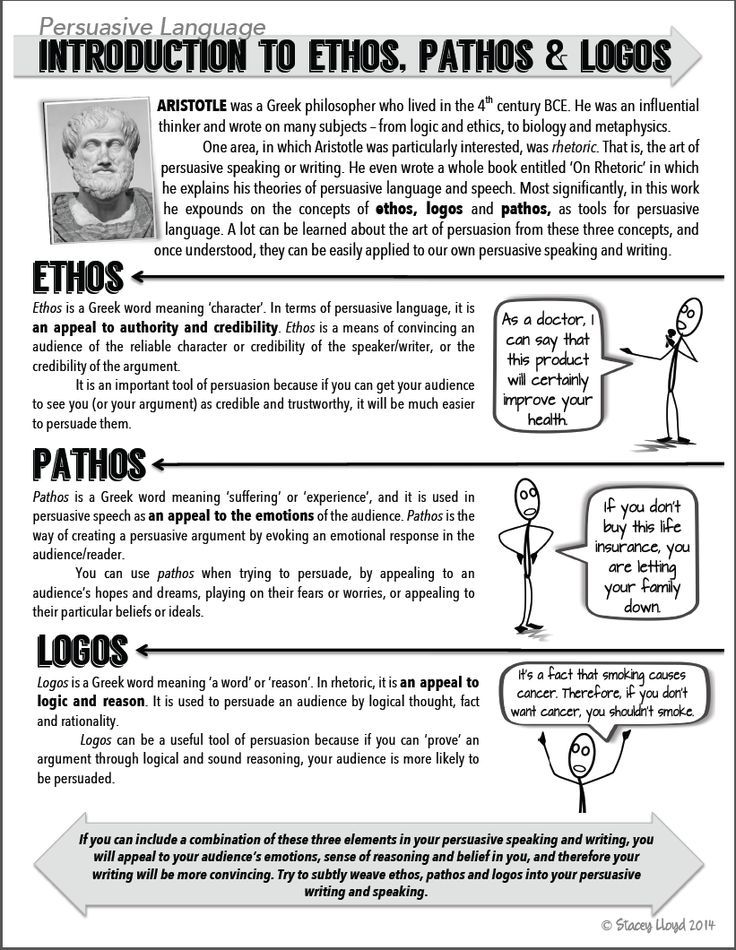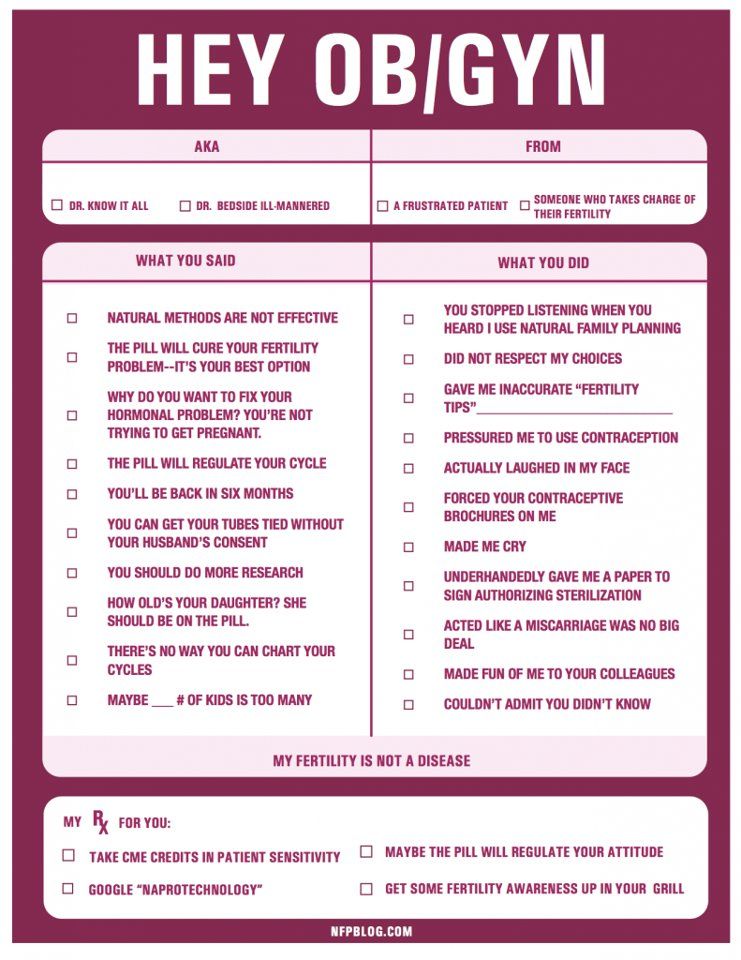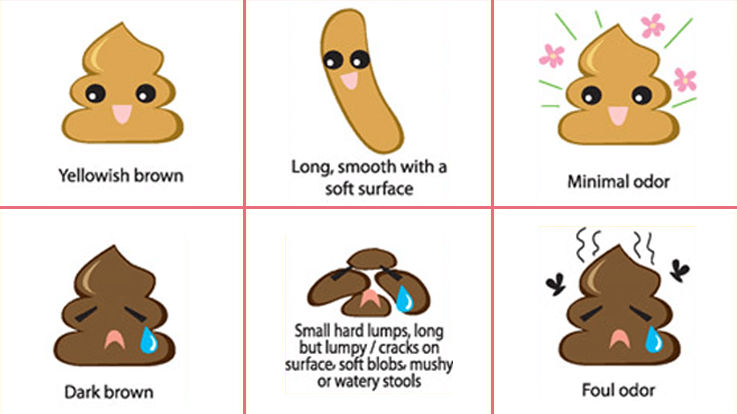Fears and worries
The Big Difference Between Fear and Worry
"Everything you ever wanted is on the other side of fear." Agree or disagree? I happen to disagree.
The saying implies that if you just get over your fear, you get what you want. Liberated from the fear that's holding you back, you move boldly and swiftly towards your dreams—I guess that's the idea?
Eradicating fear is not a requisite for getting what you dream of and hope for.
Fear is natural and healthy. It's okay to be afraid that something will or won't ever happen. It's okay to be invested in your life and encounter the feelings of:
I'm scared this relationship/job/confidence/new weight I've worked so hard to build is going to somehow break...
I'm scared I'm never going to find my person...
I'm scared my person is going to leave me...
The list continues.
It's not only okay to encounter these fears, it's inevitable.
It's when you become afraid of the fear itself that problems and blocks arise.
When you don't build a tolerance for a healthy, natural amount of fear, you unconsciously turn toward avoidant behaviors that mess everything up. You worry to distract yourself from feeling the fear. To distract yourself from accepting that there are some aspects of life that are out of your control. To distract yourself from accepting that yes, you're taking a risk and yes, you might get hurt.
Worrying pretends to be necessary, but it's not proactive and it's not helpful. Worrying buddies up with your imagination to exploit your fears.
Worrying buddies up with your imagination to exploit your fears.
Worrying is focusing your thoughts on all the negative outcomes at the opportunity cost of applying that same energy towards problem solving. Fears need a combination of acceptance and positive reassurance to be managed. The energy you direct towards your thoughts and feelings is what you feed your state of mind.
Worry is junk food for your fears. Unlike creative problem solving, acceptance and recruiting support, worry doesn't do anything useful; it just broadcasts your fears so that your perspective becomes insular.
Unlike creative problem solving, acceptance and recruiting support, worry doesn't do anything useful; it just broadcasts your fears so that your perspective becomes insular.
Worry is junk food for your fears.
Worry is full of empty calories and because you're not giving your fear anything useful to digest, your fear remains hungry, continues to binge on your negative thoughts, and eventually becomes obese.
When fears swell from unproductive negative thinking (i.e. worrying) they're difficult to make space for because they're too big; they overwhelm your emotional landscape. They're too heavy to carry, and so they hold you back from going where you want to go.
Fear is unavoidable, worry is avoidable.
Fear is deep, worry is shallow.
Fear is powerful and any power can be harnessed positively. Worry is weak and can't be harnessed productively.
Fear guides you towards personal growth and an expansion of the heart—accepting fear is rewarded with greater possibilities.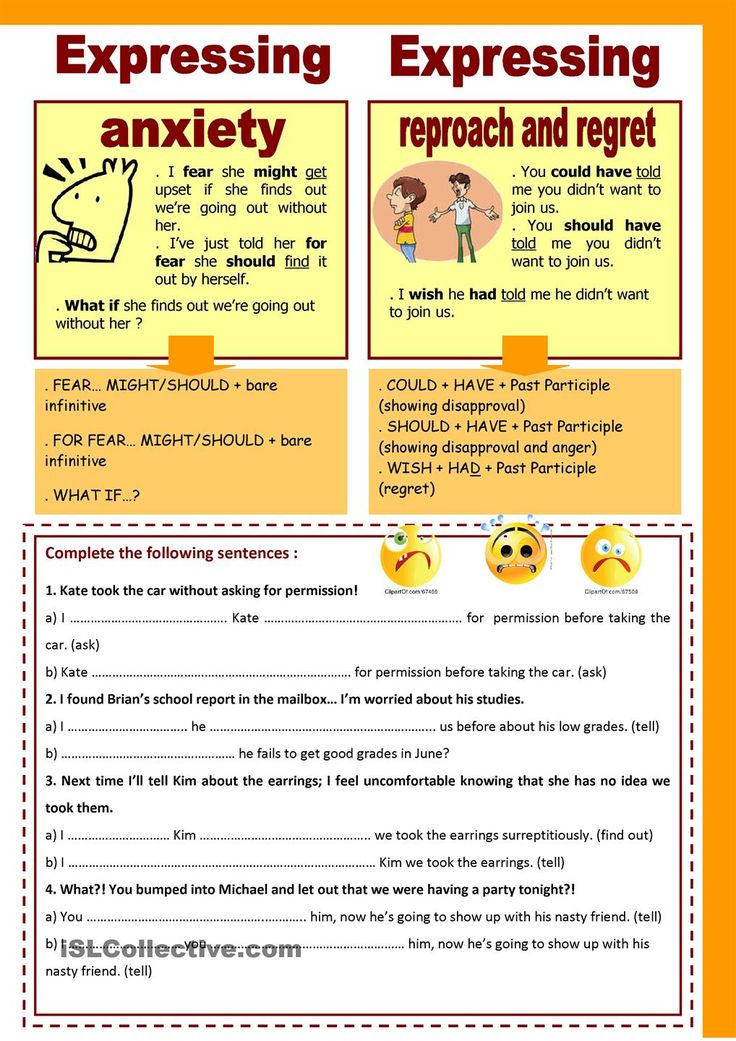 Worry guides you towards insularity and shrinks your ability to connect to others—accepting worry is "rewarded" with greater anxiety.
Worry guides you towards insularity and shrinks your ability to connect to others—accepting worry is "rewarded" with greater anxiety.
Fear is healthy. Worry makes you sick.
Everyone is afraid of something, real or imagined.
To make sure to manage your fears, find a place to put them. Invite them in instead of shoving them out. There's an old saying in therapy, lean in to the feeling. It's resistance to the fear via worry, not the fear itself, that is the saboteur.
Sometimes, particularly as you in transition into or out of something, fear is strong. During those times, it's important to meet your fears with positive management. What that looks like is directing your energy towards creative solutions, assurance, and acceptance. If you need some help in doing that, go ahead and recruit some support. The most successful people in life don't live without fear, they just don't make an enemy out of their fear.
This article originally appeared on www.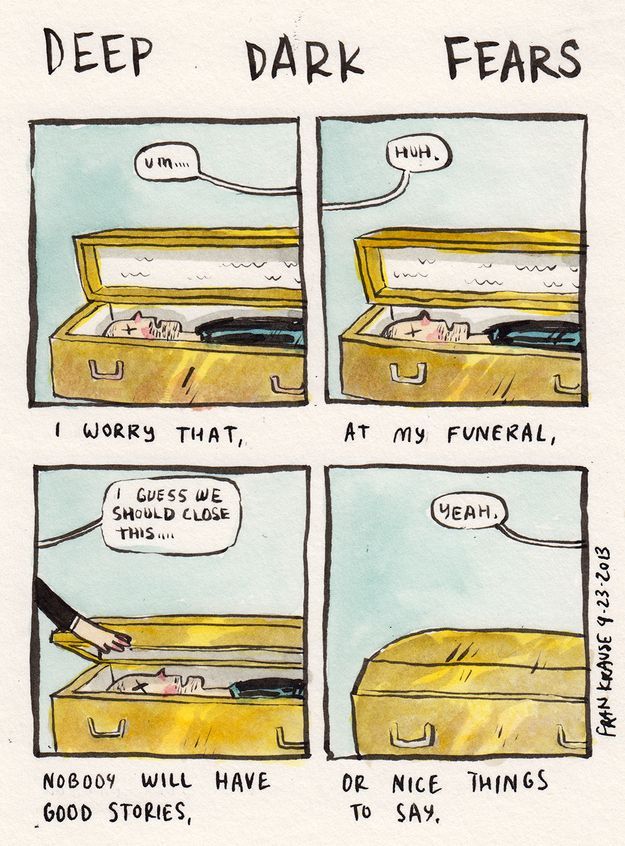 katherineschafler.com
katherineschafler.com
Read next: 3 Ways to Slay Your Fear (And Why We Worry)
Shine is supported by members like you. When you buy through links on our site, we may earn an affiliate commission. See our affiliate disclosure for more info.
Ten ways to fight your fears
Whatever it is that scares you, here are 10 ways to help you cope with your day-to-day fears and anxieties.
These tips are for people who are coping with everyday fears. If you have been diagnosed with an anxiety-related condition, see our page on generalised anxiety disorder.
1. Take time out
It's impossible to think clearly when you're flooded with fear or anxiety. The first thing to do is take time out so you can physically calm down.
Distract yourself from the worry for 15 minutes by walking around the block, making a cup of tea or having a bath.
2. Breathe through panic
If you start to get a faster heartbeat or sweating palms, the best thing is not to fight it.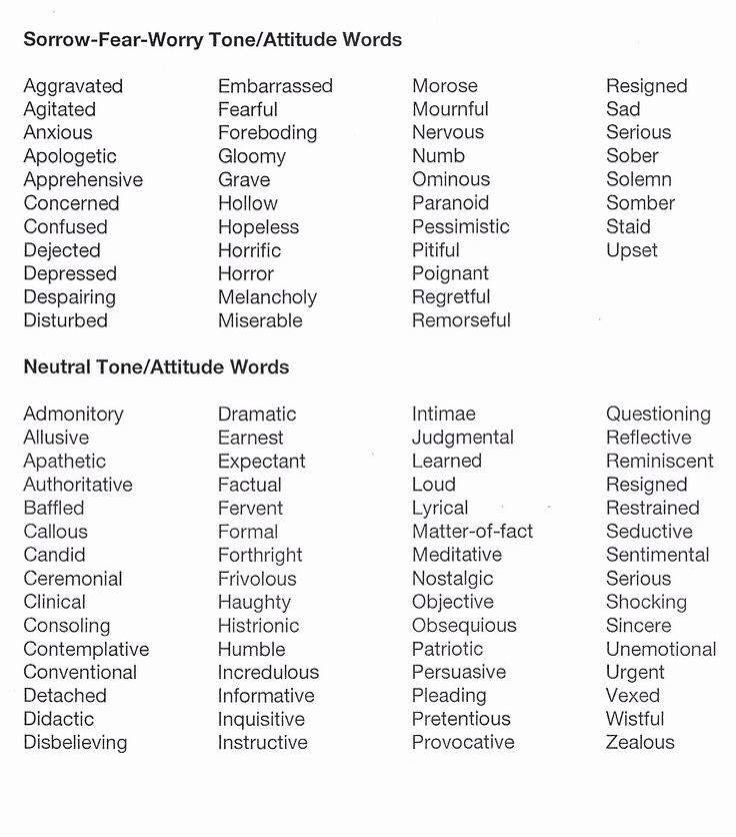
Stay where you are and simply feel the panic without trying to distract yourself. Place the palm of your hand on your stomach and breathe slowly and deeply.
The goal is to help the mind get used to coping with panic, which takes the fear of fear away.
Try this breathing technique for stress
3. Face your fears
Avoiding fears only makes them scarier. Whatever your fear, if you face it, it should start to fade. If you panic one day getting into a lift, for example, it's best to get back into a lift the next day.
4. Imagine the worst
Try imagining the worst thing that can happen – perhaps it's panicking and having a heart attack. Then try to think yourself into having a heart attack. It's just not possible. The fear will run away the more you chase it.
5. Look at the evidence
It sometimes helps to challenge fearful thoughts. For example, if you're scared of getting trapped in a lift and suffocating, ask yourself if you have ever heard of this happening to someone. Ask yourself what you would say to a friend who had a similar fear.
Ask yourself what you would say to a friend who had a similar fear.
6. Don't try to be perfect
Life is full of stresses, yet many of us feel that our lives must be perfect. Bad days and setbacks will always happen, and it's important to remember that life is messy.
7. Visualise a happy place
Take a moment to close your eyes and imagine a place of safety and calm. It could be a picture of you walking on a beautiful beach, or snuggled up in bed with the cat next to you, or a happy memory from childhood. Let the positive feelings soothe you until you feel more relaxed.
8. Talk about it
Sharing fears takes away a lot of their scariness. If you can't talk to a partner, friend or family member, call a helpline such as Breathing Space on 0800 83 85 87 or Samaritans on 116 123.
You could also try a Cognitive Behavioural Therapy approach over the telephone, with a service such as NHS Living Life. If you would like to find out more about this appointment-based service, you can visit the Living Life website or phone 0800 328 9655 (Mon to Fri, 1pm to 9pm).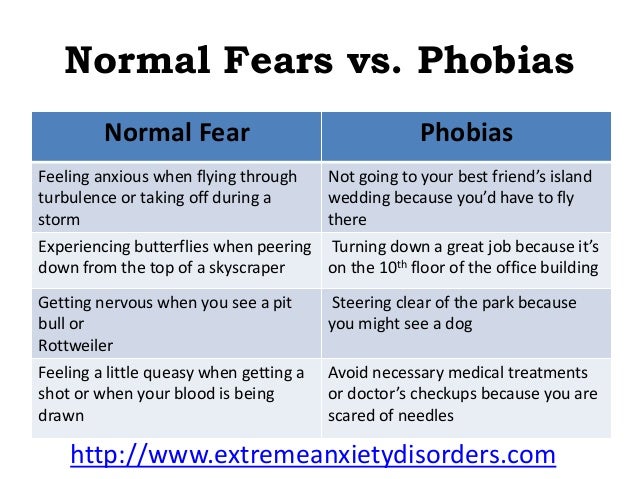
If your fears aren't going away, you can ask your GP for help. GPs can refer people for counselling, psychotherapy or help through an online mental health service, such as Living Life to the Full.
9. Go back to basics
Lots of people turn to alcohol or drugs to self-treat anxiety, but this will only make matters worse. Simple, everyday things like a good night's sleep, a wholesome meal and a walk are often the best cures for anxiety.
10. Reward yourself
Finally, give yourself a treat. When you've made that call you've been dreading, for example, reinforce your success by treating yourself to a massage, a country walk, a meal out, a book, a DVD, or whatever little gift makes you happy.
treatment, how to get rid of anxiety, how to deal with anxiety for no reason
Anxiety is a negatively colored mood with feelings of worry, tension, and fear. In moderation, such emotions are useful: they help to mobilize forces and find a way out of extreme situations. But there must be grounds for concern, and normally it lasts a limited period of time.
But there must be grounds for concern, and normally it lasts a limited period of time.
If a person constantly experiences a feeling of anxiety and anxiety for no reason, this may indicate the presence of a mental disorder. In the absence of help, constant tension wears out the nervous system and the body as a whole, which leads to a breakdown in adaptation mechanisms and the development of chronic diseases. nine0003
If you notice that you cannot relax for a long time, then you should think about visiting a specialist.
In pathological cases, a state of anxiety and restlessness without a cause manifests itself both mentally and physically.
Mental symptoms:
- constant feeling of fear and excitement for no reason,
- poor concentration and attention,
- sleep disorders,
- emotional lability, irritability, tearfulness,
- inability to relax and fully engage in daily activities or communication,
- the need to reassure others that everything is okay.
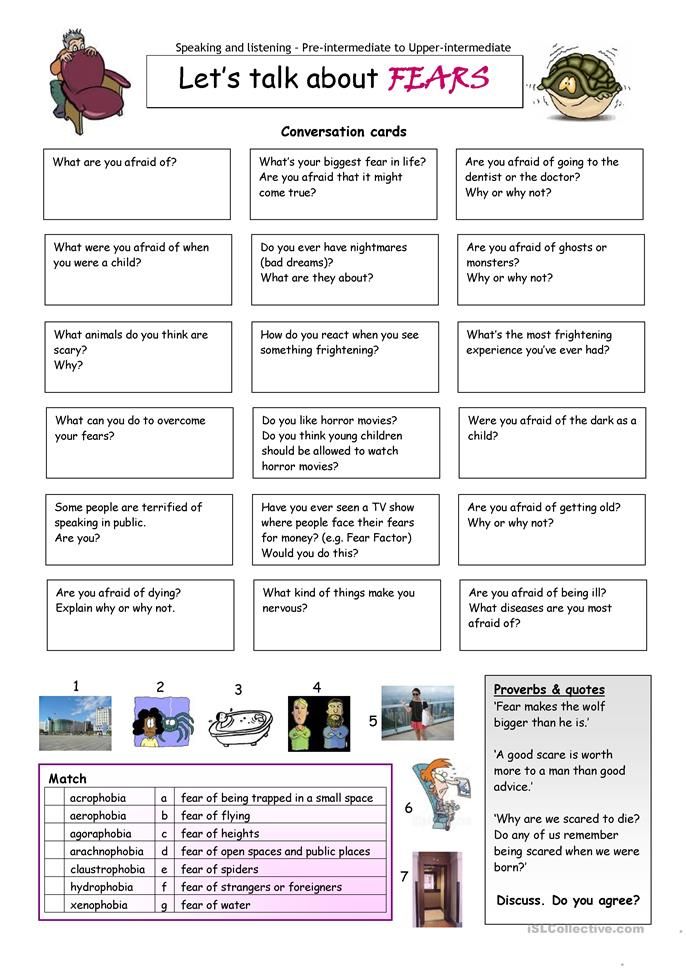 At the same time, words of support do not bring relief.
At the same time, words of support do not bring relief.
Physical symptoms:
- rapid breathing and heartbeat,
- headaches, pain in the abdomen and in the region of the heart,
- excessive sweating,
- eating disorders: increased or loss of appetite,
- weakness,
- shivering, chills,
- stool disorders: frequent urge, constipation,
- feeling short of breath,
- nausea,
- muscle spasms and pain.
Unreasonable anxiety and anxiety increase or smooth out from time to time. Exacerbations often accompany stress: conflicts, important events, illness. Normally, a person recovers quickly after the situation is resolved, but when upset, negative emotions do not go away. nine0003
The intensity of anxiety varies from mild to severe. The extreme is panic. If you ignore an anxiety state for a long time for no reason, then panic attacks can join it. They overtake unexpectedly and sometimes without a good enough reason, but after this episode, a person begins to avoid situations similar to the one in which it happened: public transport, an elevator, or just a crowd of people. This greatly reduces the quality of life and can lead to social isolation. nine0003
This greatly reduces the quality of life and can lead to social isolation. nine0003
Causes of causeless anxiety and anxiety
The occurrence of anxiety disorder is influenced by heredity. It has been found that certain brain structures and features of biological processes play an important role in the emergence of fear and anxiety. Personal characteristics, somatic health problems, lifestyle and various types of addictions also matter. Sometimes there is no cause for causeless anxiety and worry. Negative feelings usually have a trigger - an event or thought that causes an anxious response. However, most people are not aware of their triggers and believe that their emotions are groundless. In this case, only a specialist will help to understand why excitement arises for no reason. nine0003
There are a number of diseases, the symptoms of which are constant anxiety. With causeless fear and anxiety, the reasons may be as follows:
- Generalized Anxiety Disorder: Persistent nervousness and worry over small things that are usually visible to others and last 6 or more months.
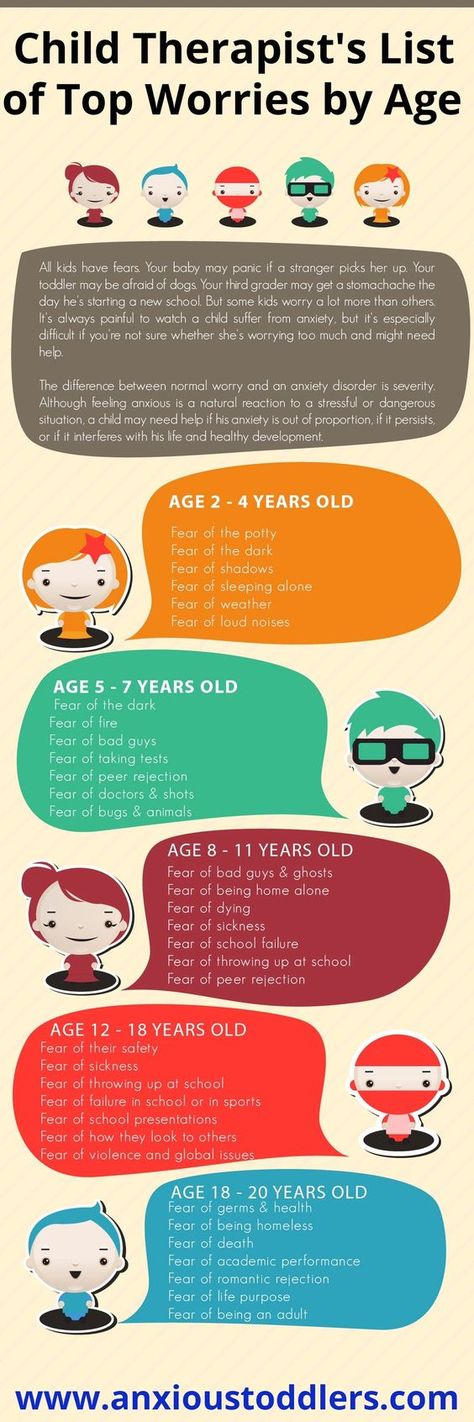 It starts in adolescence and intensifies with age.
It starts in adolescence and intensifies with age. - Obsessive-compulsive disorder: obsessive thoughts and fears that are accompanied by obsessive actions that do not bring relief. Obsessive-compulsive disorder is distinguished - a person is indomitably haunted by memories that reproduce a traumatic situation. nine0014
- Phobias: irrational fear of any, even mundane, things. Accompanied by uncontrolled panic and physical manifestations.
- Panic attack - an excruciating and sudden attack of panic, which is accompanied by a fear of death and vivid somatic symptoms. The regular occurrence of panic attacks means the development of a panic disorder.
- Post-traumatic stress disorder: occurs after a severe traumatic situation and is accompanied by high levels of anxiety, avoidance and flashbacks. nine0014
These are the most common examples, but pathological anxiety can be a symptom of other disorders or the result of a failed stress management. If you want to understand why there is a feeling of anxiety for no reason, you should consult a doctor. Without clarifying the main factor and working on it, it is impossible to restore health and peace of mind.
Without clarifying the main factor and working on it, it is impossible to restore health and peace of mind.
What to do with causeless anxiety and anxiety
It is difficult to live in constant stress. If you experience causeless anxiety and fear of what to do, the following list will tell you: nine0003
- Talk to someone you trust. This could be a relative, a close friend, a therapist, or a helpline employee. People are social creatures, so communication is a good way to relieve internal tension.
- Find a way to calm down quickly. There is not always a person with whom you can share. Therefore, it is important to find a suitable method that will help you relax: breathing techniques, soothing music, aromatherapy, self-massage, and more. If you cannot independently choose a technique that quickly helps with anxiety for no reason, a specialist will tell you what to do. nine0014
- Add physical activity to your life. It is a natural and effective remedy for anxiety.
Moderate sport relieves stress, lowers stress hormones, and strengthens the nervous system. Get at least 30 minutes of physical exercise a day.
- Normalization of lifestyle. Get enough sleep, eat well, give up bad habits. This stabilizes physical performance and neurotransmitter levels, which helps maintain emotional balance. nine0014
- Start keeping a diary. Notes help identify patterns of anxiety flare-ups, understand the causes, and notice early signs of their occurrence. Also, thanks to this, you will begin to focus more on positive events that you might not have noticed before.
With excitement for no reason, everyone who regularly encounters this wants to know what to do. There is no universal method, however, the 5 steps listed above are recommended for every person with increased anxiety. This may be enough to alleviate symptoms. But if self-help techniques do not give the desired effect, then with a regularly occurring feeling of anxiety for no reason, you need to find out from a specialist what to do.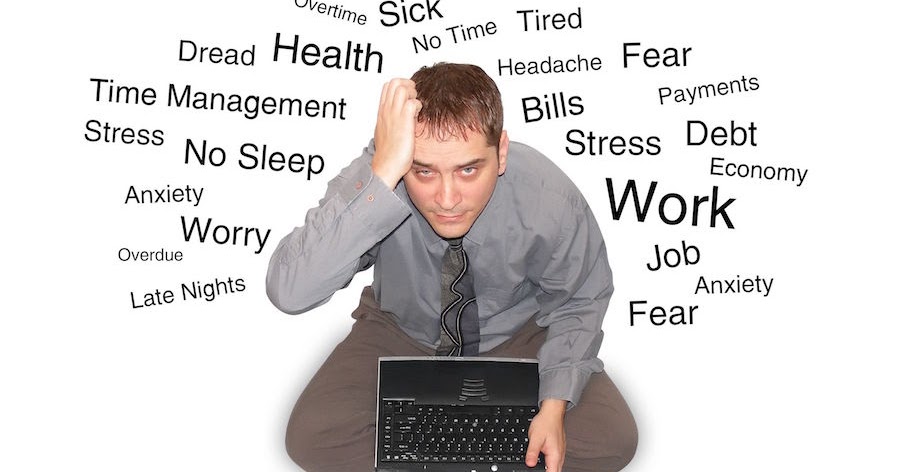 nine0003
nine0003
Treatment of causeless feelings of anxiety and restlessness
Regardless of the cause of pathological anxiety, professional help is the only complete method to eliminate the problem. If you have constant excitement and anxiety for no reason, you can quickly and effectively learn from a psychiatrist or psychotherapist how to get rid of this condition.
Due to the diversity of anxiety disorders, their therapy must be adapted to the individual clinical picture and diagnosis. Therefore, only a highly qualified specialist who has experience working with different types of anxiety conditions can tell you how to get rid of an anxiety state for no reason. For example, the therapy algorithm for a patient with obsessive-compulsive disorder (OCD) is different from the help for panic attacks. nine0003
For a state of anxiety and anxiety without a cause, treatment includes the following approaches:
- Psychotherapy. The most promising direction, which not only eliminates the symptom, but identifies the cause and fights it.
 Therapy teaches when feeling anxiety for no reason, how to get rid of acute attacks of anxiety, relax, look at life situations differently. The doctor will help to uncover the main causes of your fears and work them out. The patient receives the tools to overcome anxiety and uses them successfully. Cognitive-behavioral therapy is usually used: in the course of treatment, the patient encounters an object of concern and gradually gains confidence that he can control the situation. nine0014
Therapy teaches when feeling anxiety for no reason, how to get rid of acute attacks of anxiety, relax, look at life situations differently. The doctor will help to uncover the main causes of your fears and work them out. The patient receives the tools to overcome anxiety and uses them successfully. Cognitive-behavioral therapy is usually used: in the course of treatment, the patient encounters an object of concern and gradually gains confidence that he can control the situation. nine0014 -
Medical therapy. Depending on the type of anxiety and the presence of associated mental or physical health problems, antidepressants, sedatives, sleeping pills, and other drugs may be prescribed. When anxiety is felt without a cause, drug treatment will alleviate the symptoms and improve the quality of life of the patient during his psychotherapeutic work on the underlying cause. Uncontrolled medication leads to dangerous side effects and withdrawal syndrome, so they can only be used according to the individual course prescribed by the doctor.
nine0003
It is recommended to use a combination of psychotherapeutic and drug treatment, but sometimes only the first one is enough.
You should not put off visiting a doctor if you feel that experiences are preventing you from living. Over time, the symptoms worsen and other severe mental illnesses join: depression, neurotic disorders, and more. If the normalization of lifestyle does not help, it means that you will understand how to get rid of unreasonable anxiety only from a psychotherapist. With a timely appeal to a competent specialist, only a few sessions of psychotherapy may be enough for recovery. nine0003
Thanks to modern psychotherapeutic approaches, hundreds of people are making great strides every day in the fight against anxiety disorders. There is no need to endure the painful burden of fear and anxiety, because timely assistance allows you to achieve excellent results: the patient will fully recover and return to a full life, and the improvement will be noticeable after the first session.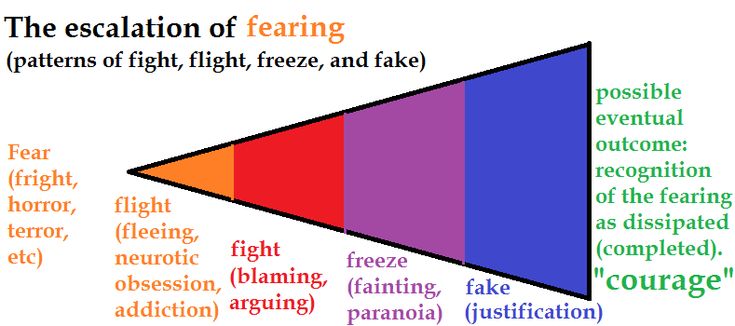
How to cope with anxiety: 7 ways to help ‹ GO Blog
Anxiety is an emotional state caused by the expectation of danger or threat. While fear is a basic human emotion associated with the instinct of self-preservation, and appears directly at the moment of danger. nine0003
The terms "fear" and "anxiety" are not synonymous, but they can be used interchangeably when it comes to situational anxiety (state at a given moment in time).
In the normal state, the self-preservation function encourages action, but there are also moments of apathy when anxiety intensifies.
We will tell you how to cope with anxiety on your own and determine its level in yourself.
Read more: "9 Proven Ways to Beat Procrastination"
How to Measure Anxiety
American psychologist Charles Spielberger studied more than 117 signs of human anxiety and created a scale to determine its level. His "assessment of the level of anxiety" is divided into situational and personal. Situational is responsible for the state at a given moment in time and the influence of external circumstances - for example, self-isolation. Personal - character of a person.
Situational is responsible for the state at a given moment in time and the influence of external circumstances - for example, self-isolation. Personal - character of a person.
To determine "your level" of anxiety, you can take a test of 40 short questions. nine0003
What causes anxiety
The main factors that provoke increased anxiety in us are loneliness, problems at work, problems in relationships, health, environment and all sorts of conflicts.
Our way of life also has a great influence. For example, we are more likely to experience anxiety states if we are constantly on the phone or watching the news on TV. Digital progress has certainly made our life faster and better, but we pay for this comfort with an additional level of stress, new fears and complexes due to the large flow of news. nine0003
Try to minimize the number of hours spent on the Internet. Go outdoors, read, do yoga, cook, cross-stitch, build LEGOs – there are so many more options than you might think.
Stages of anxiety
– Waiting alarm. People who foresee the most unfavorable of all possible situations suffer. Such anxiety can appear at certain moments or haunt a person constantly.
- Anxiety in the form of phobias is associated with certain situations and objects. For example, fear of loneliness, spiders or darkness. May be a clinical case if expressed in the form of panic attacks.
- Neurotic anxiety. This form of anxiety is the most serious and is found in many psychological diseases: hysterical, schizoid. There is a pathological level of fear here that destroys a person's mental health.
The whole planet is now in fear of waiting due to the incessant flow of news and uncertainty. "Fear of waiting" or "free fear" is formed due to the information flow in which we are constantly immersed. The tools that help to cope with situational anxiety, which has no connection with clinical cases, will be described below. nine0003
False alarm
Feelings of fear are easily confused, so before we talk about how to get rid of anxiety, we will learn how to identify it.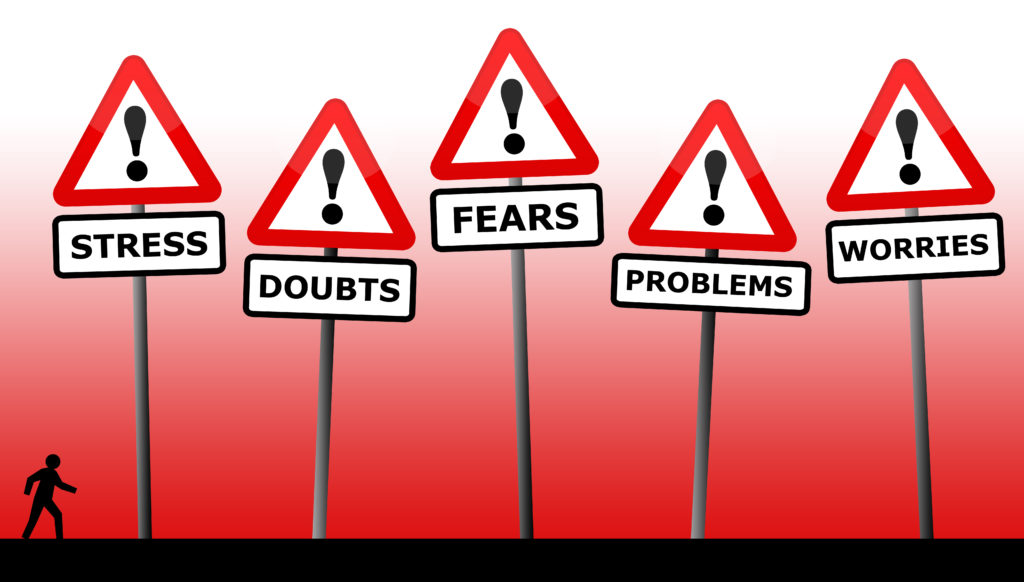
There are situations when we do not distinguish between emotions, so the so-called "false alarm" is formed. In this case, the first thing psychologists can advise is to learn how to isolate anxiety from a large stream of other emotions. Observe for yourself - in what situations you are overcome by anxiety. Divide these situations into those in which anxiety is justified and those where it is not. nine0003
For example, you are on a bus and as you approach the bus stop, you are overtaken by a feeling of anxiety. On the one hand, this may be due to fear that you will miss your stop, or a sense of shame, as it is embarrassing to ask the driver to stop the car.
Another example is when you want to ask the teacher in class, but you are afraid to raise your hand. This fear may arise from self-doubt and the expectation that classmates will laugh at you.
Sometimes anxiety is born from some other feelings, such as shame or insecurity. Realizing this and overcoming it, you no longer have a reason for concern, and with it the state of anxiety disappears.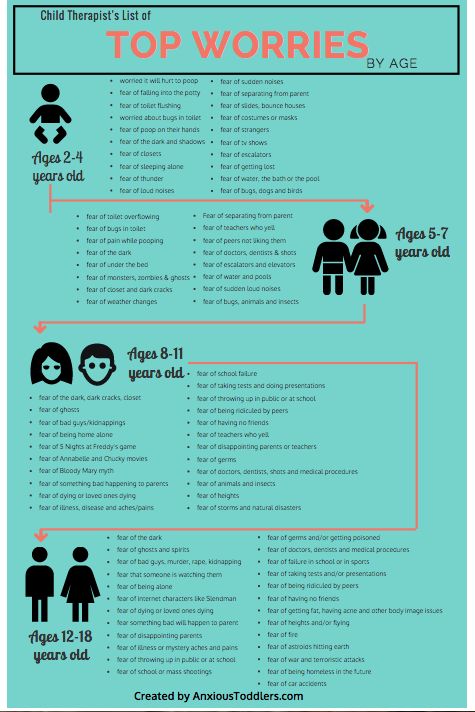 nine0003
nine0003
Read more: “How to stop being shy and get rid of the language barrier”
How to cope with anxiety
Details detailed anxiety often due to uncertainty in the actions and feelings. First, try to find out what causes anxiety. For example, you are worried about being fired from your job. Before you panic, look at the facts: look at the state of the market and the area in which your company operates, evaluate the workload at work now and predict the task plan for the next month. And this applies not only to work, but to any area in which you feel anxiety. nine0003
Usually such an exercise helps to see the true picture. If you understand that while everything is under control, you can exhale, if not, proceed to your detailing. Write out a detailed plan of action that will help you avoid uncertainty and tell you how to act in any situation:
-
Write down what skills you have and where they can be useful.
 For example, being an illustrator or photoshop, having a driver's license and owning a car, copywriting skills, etc. nine0003
For example, being an illustrator or photoshop, having a driver's license and owning a car, copywriting skills, etc. nine0003 -
Edit your resume and prepare some cover letters to the employer about yourself.
-
Form your own range of services, from the most preferred activities to the least interesting.
-
Leave a list of potential employers to whom you can offer your services. The bigger, the better.
-
Write to them!
The work done will help you feel more confident and have a plan for coping with a crisis. nine0003
Sometimes anxiety arises from the belief that we will not cope with this or that action. A visual picture of your skills will always help to believe in yourself. When you read your list, you will realize that you can achieve a lot, despite the circumstances.
Read more: “4 things on your resume that will help the employer to choose you”
Use exposure therapy
A complex combination of words with a simple meaning is a face-to-face meeting with your problem. It is important to understand that this is NOT a fight against a problem. The point is to acknowledge the existence of anxiety, not to get rid of it completely.
It is important to understand that this is NOT a fight against a problem. The point is to acknowledge the existence of anxiety, not to get rid of it completely.
Don't ignore things that make you feel anxious. For example, to move up the career ladder, you need to learn English, but you haven’t opened your textbook for three days and you constantly scold yourself for it. This lowers your self-esteem and increases your anxiety about your success at work and in life. nine0003
Give yourself a full day of rest without worries or self-criticism. Imagine that this is an official vacation or vacation. And then gradually get down to business: you can start with one page of English text per day or a five-minute video. Gradually, you will accustom your body to the load and develop a habit.
Keep a sleep schedule
It is during sleep that growth hormone is produced, which is responsible for the restoration of our body, including the nervous system. Especially if we go to bed before 12 o'clock at night.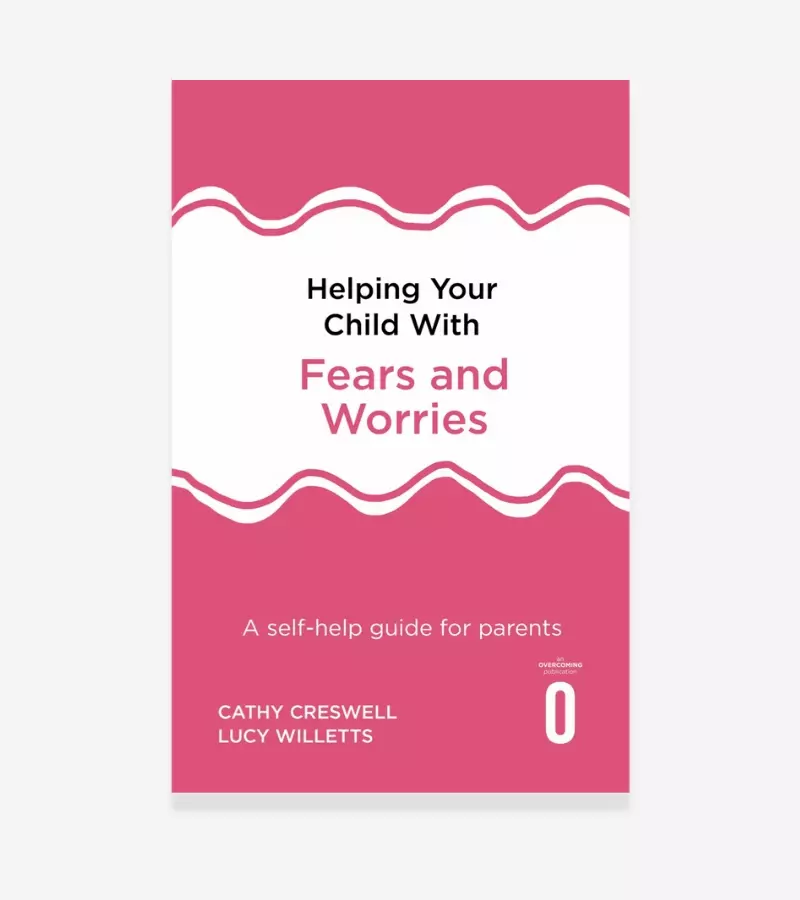 nine0003
nine0003
The BBC TV show Trust Me I'm a Doctor, in collaboration with the University of Oxford, did a little experiment on how sleep affects our psychological state. The study involved people who are distinguished by "strong sleep". During the experiment, the participants were given conditions: in the first three nights they had to sleep for 8 hours, which is the norm, and the next three nights - for 4 hours. Every day, the subjects answered questions that helped determine changes in their psychological state, behavior and emotions. The results showed that after two nights of sleep deprivation, negative emotions began to predominate in the subjects, as well as an increase in distrust of others and aggression. nine0003
The study also shows that insomnia is not always the result of mental disorders, sometimes it is lack of sleep that provokes the appearance of psychological problems.
Switch
It is important to periodically switch from one activity to another - for example, from physical activity to mental activity.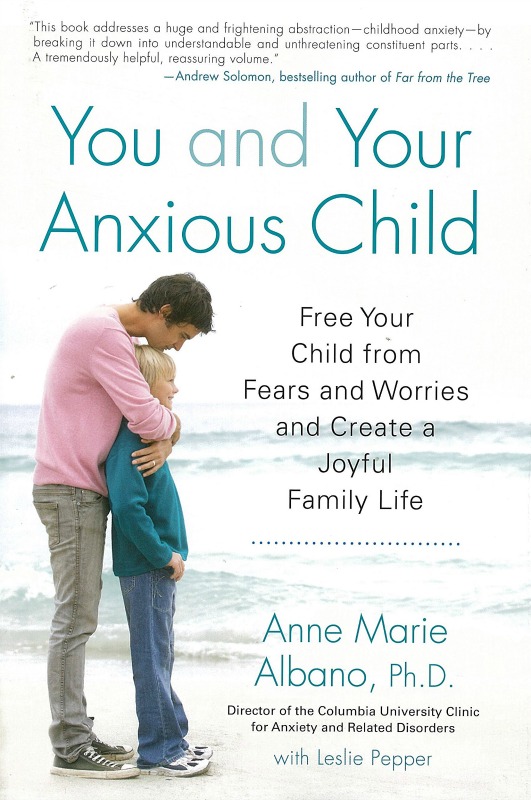 So, when you go in for sports, there is a restoration of brain functions due to the supply of oxygen. And with mental stress, the muscular system is restored by improving blood flow in the muscles. nine0003
So, when you go in for sports, there is a restoration of brain functions due to the supply of oxygen. And with mental stress, the muscular system is restored by improving blood flow in the muscles. nine0003
A simple alternation of work and study with a little physical activity will improve the functioning of the body's metabolic processes, and at the same time speed up the restoration of the nervous system, contributing to its strengthening.
Meditate and breathe
Meditation and breathing are sure helpers in overcoming psychological instability. A Johns Hopkins University study found a relationship between meditation practice and reduced symptoms of depression and anxiety. The team of researchers found that the effect of meditation is comparable to the effect of depressants - in this case, being a more useful solution to the problem, as it does not cause side effects. Meditation also helps to switch the work of the brain and focus on yourself, and not on the "noise" around.